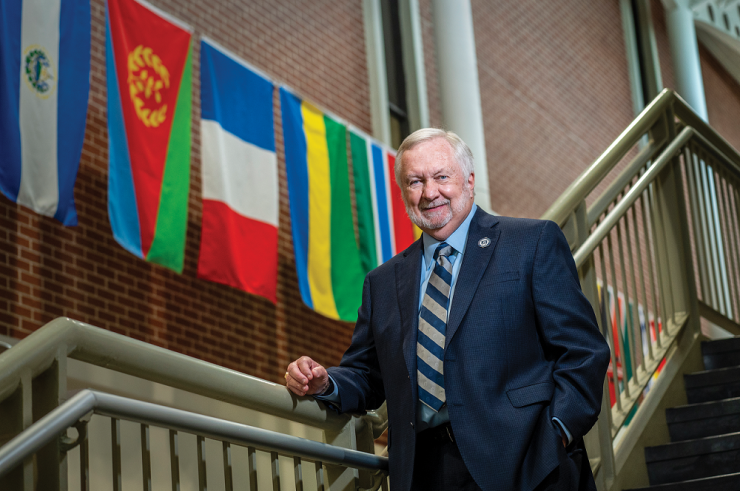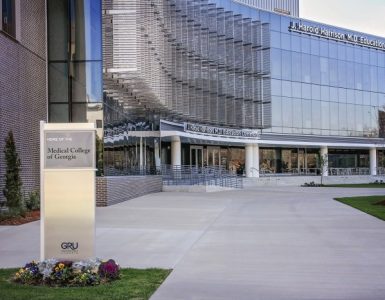On Oct. 20, physician researchers and public health experts at the Medical College of Georgia joined Peach State Health Plan representatives and NFL Hall of Famer Champ Bailey for a vaccine hesitancy panel to discuss strategies for improving Georgia’s vaccination rates, particularly among the state’s vulnerable populations.
As alumni and supporters of the state’s only public medical school, you understand all too well the health implications for Georgia communities with low vaccination rates. These are some of the same communities who lack access to critical primary care services, leaving them extremely vulnerable to death and disease associated with coronavirus.
While MCG has made considerable headway in its efforts to produce more physicians for one of the nation’s most populous and fastest-growing states, failure to vaccinate at least 70% of our state’s population could set us back even further. Lasting health effects associated with COVID-19, even in those fully recovered, could leave some Georgia communities devastated and further exasperate already strained health care and economic resources.
Further, the research of Dr. Ravindra Kolhe, director of the Georgia Esoteric and Molecular, or GEM, Laboratory, at MCG suggests that communities with low vaccination rates serve as mutation grounds for COVID-19, strengthening a virus that will go on to infect the rest of the population. Therefore, it is our responsibility to ensure that Georgia’s communities have access to the knowledge and resources they need to understand the full implications to their own health and that of their friends and neighbors.
MCG researchers want to understand why some individuals and communities are resistant to the vaccine. With national data indicating 35% of Black adults are not planning to get the COVID-19 vaccine, Epidemiologist Dr. Justin X. Moore is working to understand the factors contributing to resistance in hopes of helping improve the odds for Georgia, where Blacks account for more than 30% of the population.
His early findings indicate age and housing insecurity play a prominent role in Black adults who have failed to receive the vaccine, with 18- to 29-year-olds 21 times more likely to be hesitant compared to those 50 and older. Younger populations may believe their risk of severe COVID-19 and mortality are low due to their age and little to no chronic health conditions, and individuals who have experienced housing insecurity may have limited or unreliable interactions with health care systems.
The evidence provides us with important information about how we tackle vaccine hesitancy as a state. A more targeted approach is needed, much like with MCG’s plan to address counties with a dearth of primary care services, we must first understand the nature of the problem and how we, as Georgia’s only public medical school, are uniquely qualified to solve it.
Peach State Health Plan and ventures like them are part of that solution (see inside front cover). Their efforts to support MCG started in 2020 with a generous $5.2 million donation for student scholarships. This was then matched by the Georgia General Assembly with $5.2 million in state funding approved during the 2021 session, providing a combined $10.4 million endowment for the MCG 3+ scholars program. These partnerships have provided a platform for collaborative problem-solving at a new level. The solution is complex and requires dialogue and support from all sides, and we’re fortunate to have Peach State and our state government join us in leading this statewide conversation.
While partisan politics riddles our daily affairs, as a state we must stand united for the health and wellbeing of Georgia. The coronavirus pandemic has shown us that MCG plays a critical role in caring for Georgia’s citizens and in our continued existence as a people. That is our unique value proposition and how we intend to use our considerable expertise to return to normal life.
Please join me in thanking Peach State and our state legislature for their support and in expressing extreme gratitude for the physicians and researchers we are fortunate to employ. We owe them a debt of gratitude for their contributions to Georgia’s future, and I see no bigger purpose than providing a sustainable future for generations to come.
Sincerely,

Brooks Keel, PhD
President, Augusta University
Chair, Augusta University Medical Associates










